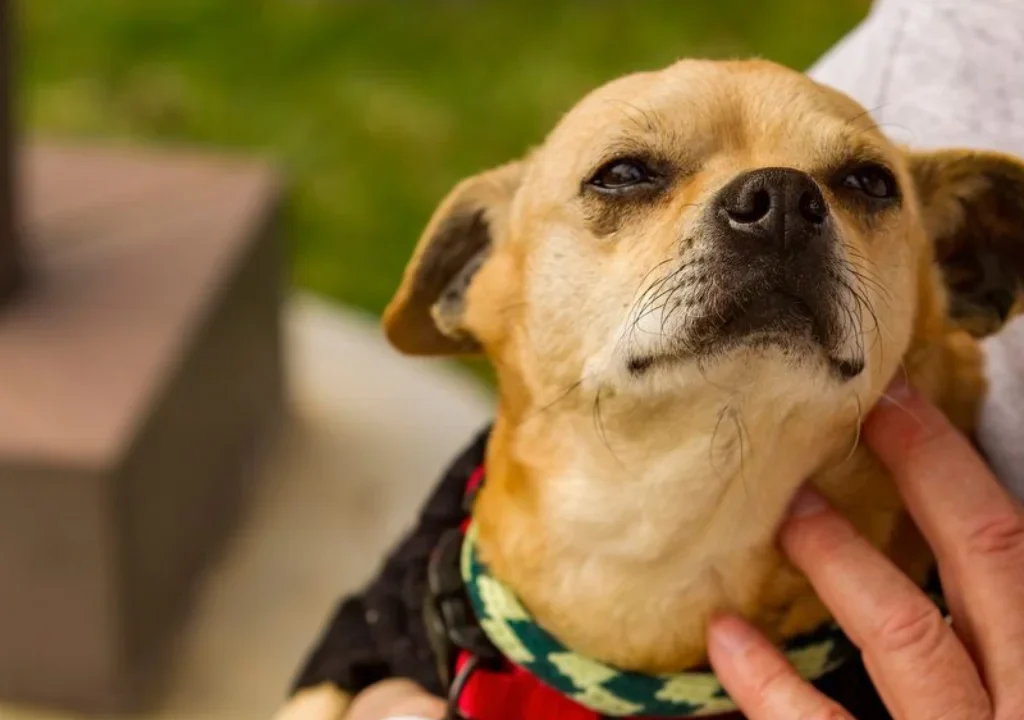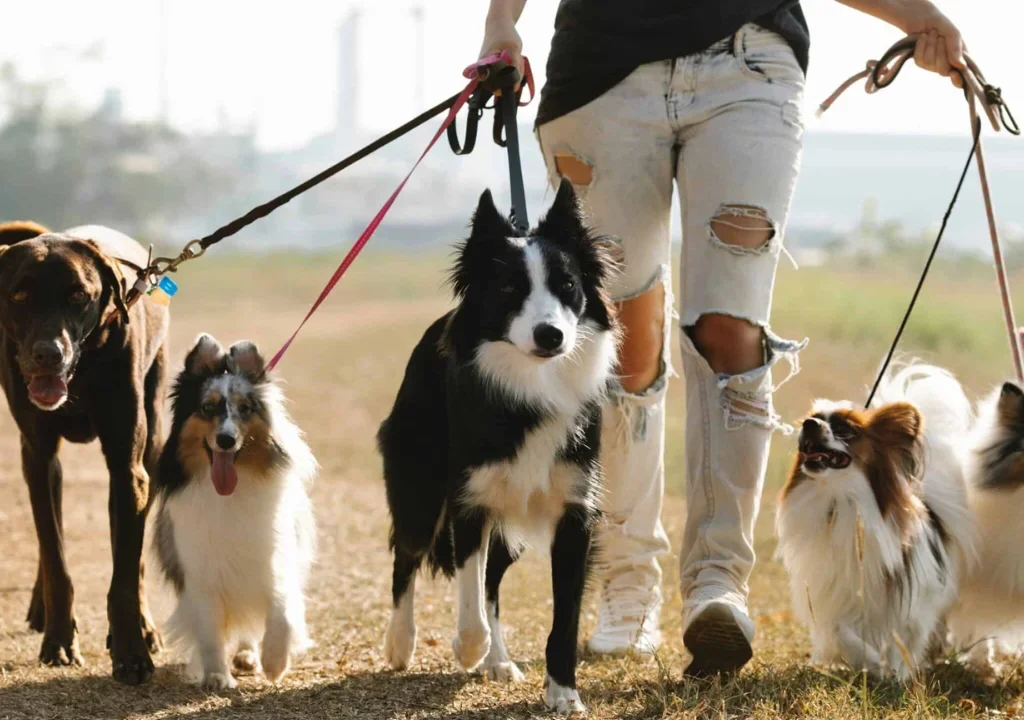
Thinking about adding a tiny Miniature Bernese Mountain Dog to your crew?
This cute hybrid dog has become popular all over the US. This is because of the wonderful combination of the Bernese Mountain Dog’s sweet nature and a size that fits well in apartments. If you’re thinking, “Is a miniature Bernese Mountain Dog the right choice for me?” You’re in the right place to find out!
The miniature Bernese Mountain Dog, or Mini Berner or Bernalier, is one of the most successful “designer” breeds made recently. Started in the early 2000s, breeders mixed the Bernese Mountain Dog with the Cavalier King Charles Spaniel. This mix gives you the best traits of both parent dogs.
Let’s talk about everything you should know about these special dogs. We’ll cover their personalities, how to care for them, and why they make such great buddies.
What Is a Miniature Bernese Mountain Dog?
A miniature Bernese Mountain Dog is a dog created by a specific plan. Breeders create this dog by breeding a purebred Bernese Mountain Dog with a Cavalier King Charles Spaniel. The result? A dog that has the lovely tri-color coat and the gentle attitude of the Bernese, but in a smaller size.
Key things about them:
- Weight: 20-50 pounds
- Height: 15-20 inches at the shoulder
- Lifespan: 10-14 years (longer than full-sized Bernese)
- Coat: Double-layered with tri-color markings
- Personality: Gentle, loving, and good with families
Unlike some designer breeds, the miniature Bernese Mountain Dog is well-liked for good reasons. Many families love the Bernese Mountain Dog’s personality, but want a smaller dog. They need a smaller dog due to space or physical problems.
7 Cool Things About Miniature Bernese Mountain Dogs
1. The Perfect Size for Modern Life
A grown-up miniature Bernese Mountain Dog is usually between 16 to 19 inches tall at the shoulder. They weigh between 25 and 50 pounds. This makes them a lot smaller than the full-sized dogs. Those can weigh up to 110 pounds.
This difference in size opens doors for many families. People living in apartments can finally enjoy the Bernese attitude without worries about how much space they have.
2. Beautiful Tri-Color Look
One of the coolest things about miniature Bernese Mountain Dogs is their coat. These dogs tend to have the tri-color markings. That is the classic black, white, and rust color that makes Bernese Mountain Dogs so well-known.
The coat often feels like the Bernese’s thick coat mixed with the silkier feel of the Cavalier. This creates a gorgeous, flowing look that’s fun to touch.
3. Wonderful Family Dogs
Miniature Bernese Mountain Dogs are great as family pets. They have the Bernese’s famous gentleness with kids, and they also have the Cavalier’s ability to adapt and be social. These dogs become close with their families. They show lots of patience with kids of all ages.
Family benefits:
- Good with kids and babies
- Patient and kind nature
- Strong protective instincts without being aggressive
- Fits into family routines
- Gets along with other pets when properly trained
4. Easier to Train Than You Think
Miniature Bernese Mountain Dogs have both parent breeds’ intelligence. This makes them surprisingly easy to train. They respond well to positive ways to train them. They also like learning new commands and tricks.
Training advantages:
- They want to make their owners happy
- They love food (great for training with treats)
- They learn house rules quickly
- They respond well to consistent routines
- They aren’t as stubborn as some breeds
5. Healthier Due to Hybrid Vigor
One big benefit of the miniature Bernese Mountain Dog is hybrid vigor. This means they often have fewer health problems than purebred parents.
Health improvements can include:
- They can live longer than full-sized Bernese
- Less chance of certain genetic problems
- Better overall health
- Better immune system
However, it is important to breed them correctly to keep these health benefits.
6. Moderate Exercise Needs
Miniature Bernese Mountain Dogs don’t need lots of exercise. They like daily walks, playtime, and activities with their families. They don’t need too much exercise.
Exercise requirements:
- 30-45 minutes of activity daily
- They enjoy walks, hikes, and playing outside
- Mental exercise with puzzle toys
- Swimming (many love water activities)
- Play indoors when the weather is bad
7. Shedding All Year Round
Be ready to groom them often. Miniature Bernese Mountain Dogs have double coats that shed all year. They shed more when the seasons change.
Grooming essentials:
- Brush 3-4 times per week or more
- Brush every day during shedding seasons
- Give them a bath every 6-8 weeks
- Get professional grooming every 8-12 weeks
- Trim their nails and clean their ears
Miniature Bernese Mountain Dog Temperament and Personality
A miniature Bernese Mountain Dog is usually warm and loving. These dogs are known for being gentle in smaller packages. They keep the calm personality that makes Bernese Mountain Dogs so loved by families.
Personality traits:
- Loving Nature: They like being around people and become close to their families. They may follow you from room to room.
- Gentle Disposition: These dogs are very patient, especially with kids. They can be great therapy dogs because they are so gentle.
- Social Butterflies: They tend to be more outgoing than full-sized Bernese Mountain Dogs. This is thanks to the Cavalier King Charles Spaniel.
- Calm Energy: They like to play, but they aren’t hyper. They enjoy activities, but they’re also happy to relax with their families.
- Alert but Not Aggressive: They make good watchdogs, telling families when someone’s at the door. They won’t get aggressive or bark too much.
Must Read:- Why Do Dogs Lick Their Paws? 7 Surprising Reasons Every Owner Must Know
Health Things to Think About
Even if hybrid vigor helps, miniature Bernese Mountain Dogs can still get some health problems from both parent breeds. Knowing about these possible issues can help make sure your dog is healthy for a long time.
Common Health Concerns
- Hip and Elbow Dysplasia: Bernese Mountain Dogs can have hip dysplasia. This makes it hard for them to move around. They can also have elbow dysplasia, which hurts their front legs. Regular checkups with a vet and keeping them at a healthy weight help manage these conditions.
- Heart Conditions: Both parent breeds can get heart problems. Checkups can help catch issues early.
- Eye Problems: They can have problems with their eyesight. Progressive Retinal Atrophy can make them blind. Yearly eye exams are recommended.
- Cancer Risk: Bernese Mountain Dogs can be at risk for certain cancers and other diseases. While the mini version may be at a lower risk, it’s still good to know about this.
Keeping Them Healthy
- Regular Vet Visits
- Good Food
- Weight Control
- Exercise
Training Your Miniature Bernese Mountain Dog
Training a miniature Bernese Mountain Dog can be a great experience. These dogs are smart and want to please their families. That makes them respond well to consistent, positive training methods.
Start Training Early
Start training them early to help them become well-behaved adults. Introduce them to different people, animals, places, and things when they are young (3–16 weeks old).
Training activities:
- Puppy classes
- Meeting friendly dogs
- Meeting different kinds of people
- Getting used to different sounds and places
- Car rides and different places
Basic Training
- Potty Training
- Leash Training
- Basic Commands
- Positive Reinforcement
Finding a Good Breeder
Finding a good breeder is important when looking for a miniature Bernese Mountain Dog. This hybrid dog is popular. Sadly, some breeders aren’t breeding them responsibly.
Things to Watch Out For
- Breeders who always have puppies available
- Breeders who won’t let you see the parents
- Breeders who can’t show you health test results
- Anyone who sells puppies in pet stores or online
- Breeders who seem more interested in making money than caring for the dogs
What Good Breeders Do
- Health Testing
- Socialization
- Health Guarantees
- References
- Breeding Goals
Living with a Miniature Bernese Mountain Dog
Life with a miniature Bernese Mountain Dog is peaceful and rewarding. These dogs fit into family life easily and usually adapt well.
Daily Schedule
- Gentle walk or playtime to start the day
- Two meals daily
- They love company and dislike being alone
- Relaxing evenings with the family
Living Space Needs
They can live in apartments if exercised regularly, but a yard is ideal.
Cost Overview
Getting and caring for a miniature Bernese Mountain Dog means initial and continuing costs. Making a budget helps you give them proper care throughout their lives.
Upfront Costs
- Purchase price: $1,200–$3,000+
- Initial vet visits: $200–$500
- Necessary items: $300–$600
- Training programs: $150–$400
Ongoing Costs
- Yearly vet care: $500–$1,500
- Good dog food: $400–$800
- Grooming: $400–$800
- Pet health coverage: $300–$600
- Other supplies: $200–$400
Frequently Asked Questions About Miniature Bernese Mountain Dogs
About the Author:
Hi, I’m Emilia! I’ve been passionate about sharing valuable pet care insights for over 10 years, and I love helping fellow pet owners provide the best care for their furry companions. My goal is to make pet care information accessible and helpful for everyone. Please remember to always consult your veterinarian before implementing any health advice or treatments for your pet.

